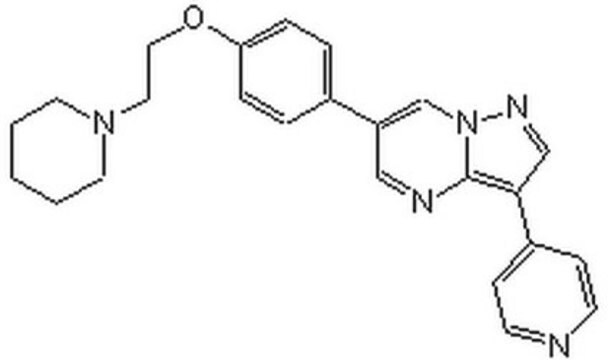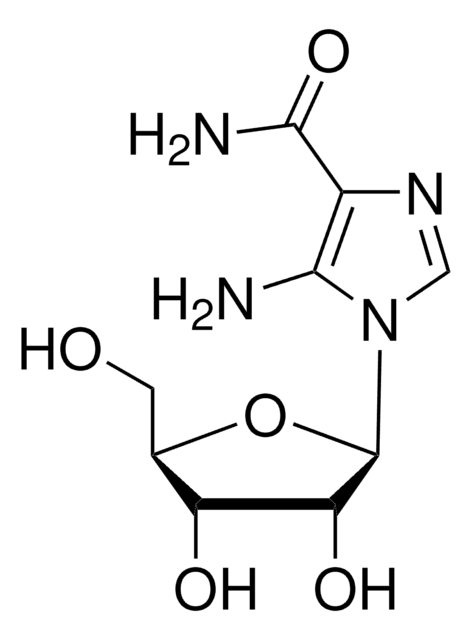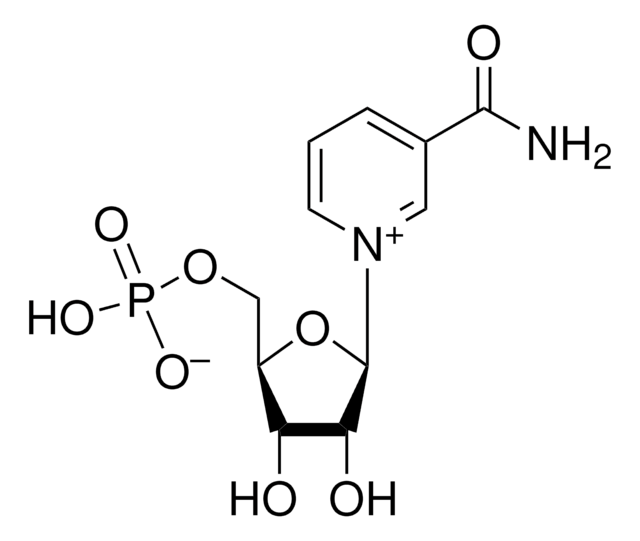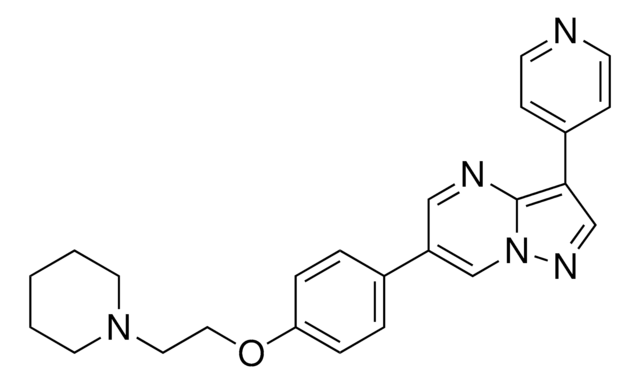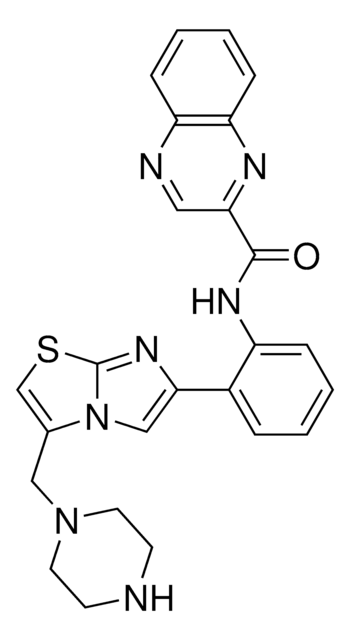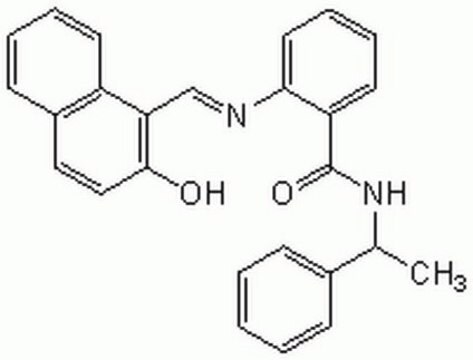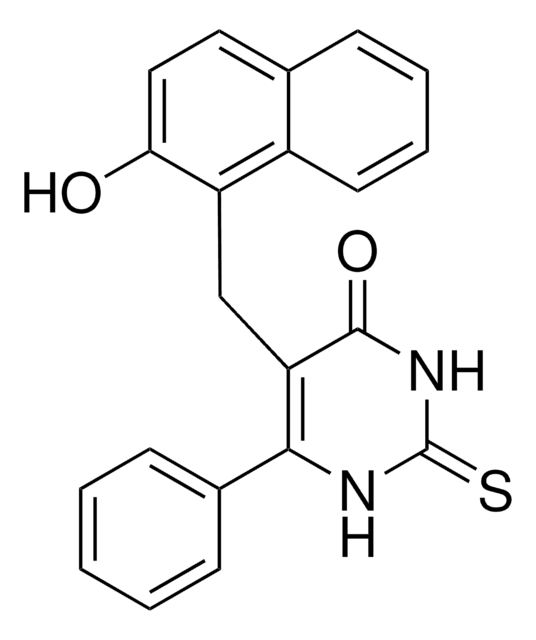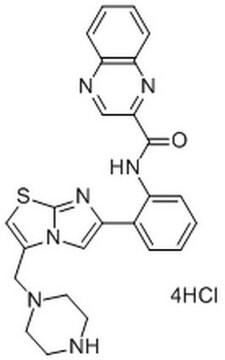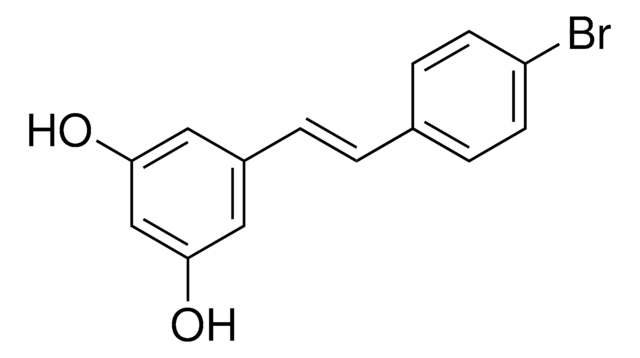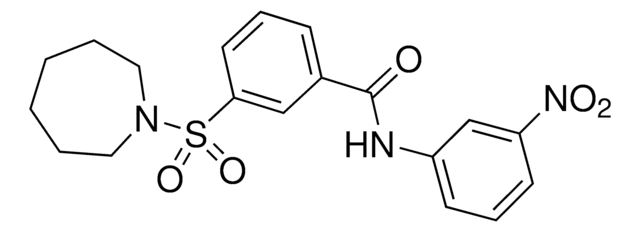E7034
EX-527
≥98% (HPLC)
Synonym(s):
6-Chloro-2,3,4,9-tetrahydro-1H-Carbazole-1-carboxamide
About This Item
Recommended Products
Quality Level
assay
≥98% (HPLC)
form
powder
color
white to beige
solubility
DMSO: >20 mg/mL
storage temp.
2-8°C
SMILES string
NC(=O)C1CCCc2c1[nH]c3ccc(Cl)cc23
InChI
1S/C13H13ClN2O/c14-7-4-5-11-10(6-7)8-2-1-3-9(13(15)17)12(8)16-11/h4-6,9,16H,1-3H2,(H2,15,17)
InChI key
FUZYTVDVLBBXDL-UHFFFAOYSA-N
Application
- in 1% dimethyl sulfoxide, 30%, polyethylene glycol-400 and 1% Tween 80 for treating C57BL/6 N mice to study its effect on intestinal morphological changes and crypt cell apoptosis
- as a an inhibitor of sirtuin 1, in treating human cancer lines MCF-7 (Michigan cancer foundation-7) and HCT116 (colon cancer cell line) incubated in Dulbecco′s modified Eagle′s medium, to study its effect on mitochondrial ATP (adenosine triphosphate) production
- Intracerebroventricularly infused in rat model of epileptogenesis, to access kainic acid–induced status epilepticus stimulated sirtuin 1 activity
Biochem/physiol Actions
Features and Benefits
related product
Storage Class
11 - Combustible Solids
wgk_germany
WGK 3
Choose from one of the most recent versions:
Certificates of Analysis (COA)
Don't see the Right Version?
If you require a particular version, you can look up a specific certificate by the Lot or Batch number.
Already Own This Product?
Find documentation for the products that you have recently purchased in the Document Library.
Customers Also Viewed
Articles
We offer a variety of small molecule research tools, such as transcription factor modulators, inhibitors of chromatin modifying enzymes, and agonists/antagonists for target identification and validation in gene regulation research; a selection of these research tools is shown below.
Our team of scientists has experience in all areas of research including Life Science, Material Science, Chemical Synthesis, Chromatography, Analytical and many others.
Contact Technical Service